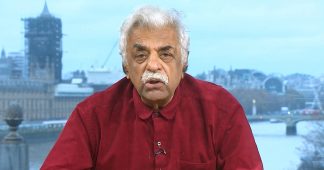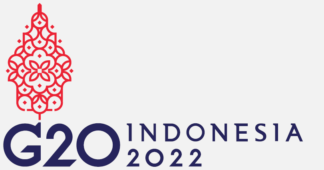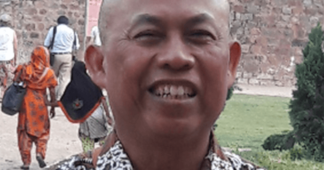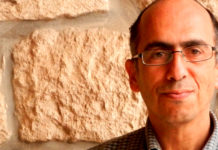CALL FOR PAPERS / APPEL A COMMUNICATIONS
Deadline / Date butoir : May 15 / 2022 / 15 mai
(La version française suit)
RETHINKING REVOLUTIONS From Lenin to Sankara and beyond:
State of Knowledge and Perspectives
International and Interdisciplinary Conference ENAM (École Nationale d’Administration et de Magistrature) Ouagadougou, Burkina Faso, July 11-12, 2022 The conference will be held in two modes: physical and virtual
General information: https://bandungspirit.org/ and https://lafi.uqam.ca/accueil/ Inquiry: conference.revolutions@uqam.ca
ORGANIZING COMMITTEE:
Prof. Isaac BAZIÉ, Directeur, Laboratoire des Afriques Innovantes, Département d’études littéraires, Université du Québec à Montréal, Québec, Canada
Prof. Darwis KHUDORI, Directeur, Master Echanges avec l’Asie, Université Le Havre Normandie, France
Prof. Awalou OUÉDRAOGO, Chair, Department of Equity Studies, Faculty of Liberal Arts and Professional Studies, York University, Canada & Directeur général, École Nationale d’Administration et de Magistrature, Ouagadougou, Burkina Faso
CALL FOR PAPERS, FOR PARTICIPATION, FOR PUBLICATION The conference is open to individual and group paper presentations.
Deadline of abstract submission: May 15, 2022. Notification for the selected presenters: May 31, 2022. Abstracts of 200-300 words may be submitted in English or French via an online form available at:
The Covid-19 pandemic is only one of the major crises of this new millennium, marked by a fundamental questioning and major mobilizations at the social, political, economic, cultural, and environmental levels. In such a context of real and symbolic breaking points, where a dream for radical changes towards a better world is very strong, the word “revolution” is among the first to appear in mind as a possible way out. It sprang up from historical reservoir together with names of political leader associated to the word: Lenin, Mao, Gandhi, Soekarno, Tito, Ho Chi Minh, Fidel Castro, Che Guevara, Sékou Touré, Modibo Kéita, Patrice Lumumba, Amilcar Cabral, Hugo Chavez, Evo Morales, Thomas Sankara… (the absence of female name in the list reflects the historical reality of men-dominated social structure worldwide that is still the case to the present day). The word is often attached to a country (French Revolution, Russian Revolution, Chinese Revolution, Cuban Revolution…), a colour or an adjective (Industrial Revolution, Cultural Revolution, Green Revolution, Orange Revolution, Quiet Revolution…), a symbolic object (Revolution of Roses, Revolution of the Carnations…).
The inter -and-transdisciplinary conference “Rethinking Revolutions” aims to bring together researchers and activists to revisit and rethink revolutions, to build a state of knowledge and to draw lessons for the future. The reflections could focus on concrete case studies or be more general and theoretical. They could also examine the uses of the concept of revolution in a particular discipline or field of activity: the spectrum of such an inquiry goes from the political to the sociological, cultural, metaphorical, and symbolic dimensions.
It is also necessary to question how revolutionary ideas, figures, and symbols emerge and circulate: their translation, adaptations to different contexts, etc. In this matter, it will be of importance to examine the scarcity or invisibility of revolutionary women, the circumstances that explain these phenomena, and the role of women in historical or contemporary revolutionary processes. The scope of the conference goes from the study of colors, flora, and their revolutionary meanings, to that of real historical or current revolutionary situations, places, or personalities. The expected presentations should focus on building a state of knowledge that enlightens “revolution” as practice and concept as well. On the other, it will be relevant to add to this effort of rethinking the revolutions, a reflection on its uses in the current post-pandemic context and question the perspectives.
Paper presenters may deal with questions such as:
- What has been identified as revolutionary?
- What contexts have made the emergence of revolutionary ideas, actions, and figures possible?
- What assessment can be made in specific revolutionary contexts?
- How specific revolutionary movements end and what is the political, ideological, social, and cultural framework used to (re)interpret the past, present and future of communities?
- Is it possible to evaluate and identify “successful” and “failed” revolutions? With which tools and criteria?
- Could the concept “revolution” be applied to current or past specific situations, which haven’t been labeled as such?
- Where are ignored or misjudged revolutionary figures – particularly women – and explains their invisibility or the misinterpretations of their actions?
- Is the concept of revolution still useful, under which conditions could it be or not operative to design socio-political actions on the one hand, and on the other and, to conceptualize them?
REPENSER LES REVOLUTIONS
De Lénine à Sankara et au delà:Etat des lieux et perspectives
Colloque international et interdisciplinaire
ENAM (École Nationale d’Administration et de Magistrature)
Ouagadougou, Burkina Faso, du 11 au 12 juillet 2022 Le colloque sera tenu en deux modes: physique et virtuel Information générale : https://bandungspirit.org/ et https://lafi.uqam.ca/accueil/
Contact : conference.revolutions@uqam.ca
COMITE ORGANISATEUR:
Prof. Isaac BAZIÉ, Directeur, Laboratoire des Afriques Innovantes, Département d’études littéraires, Université du Québec à Montréal, Québec, Canada
Prof. Darwis KHUDORI, Directeur, Master Echanges avec l’Asie, Université Le Havre Normandie, France
Prof. Awalou OUÉDRAOGO, Chair, Department of Equity Studies, Faculty of Liberal Arts and Professional Studies, York University, Canada & Directeur général, École Nationale d’Administration et de Magistrature, Ouagadougou, Burkina Faso
APPEL À COMMUNICATIONS, À PARTICIPATION, À PUBLICATION Le colloque est ouvert aux présentations individuelles et collectives. Date limite de soumission des résumés : 15 mai 2022.
Notification des présentateurs sélectionnés : 31 mai 2022.
Les résumés de 200-300 mots peuvent être soumis en anglais ou en français via un formulaire en ligne disponible à l’adresse suivante : https://docs.google.com/forms/d/e/1FAIpQLSeZU_UrvKnuBxmgi-1iI-9ewGIIup0BFcZW7vCVR8cMZrNiaA/viewform?usp=sf_link
La pandémie de Covid-19 n’est qu’une des crises majeures de ce nouveau millénaire, marqué par une remise en question fondamentale et des mobilisations importantes au niveau social, politique, économique, culturel et environnemental. Dans un tel contexte de ruptures réelles et symboliques, où le rêve de changements radicaux pour un monde meilleur est très fort, le mot “révolution” est parmi les premiers à apparaître à l’esprit, comme une issue possible. Il a surgi du réservoir historique avec les noms de leaders politiques associés à ce mot : Lénine, Mao, Gandhi, Soekarno, Tito, Ho Chi Minh, Fidel Castro, Che Guevara, Sékou Touré, Modibo Kéita, Patrice Lumumba, Amilcar Cabral, Hugo Chavez, Evo Morales, Thomas Sankara… (l’absence de noms de femmes dans la liste reflète la réalité historique d’une structure sociale dominée par les hommes dans le monde entier, ce qui est encore le cas aujourd’hui). Le mot « révolution » est souvent attaché à un pays (Révolution française, Révolution russe, Révolution chinoise, Révolution cubaine…), à une couleur ou à un adjectif (Révolution industrielle, Révolution culturelle, Révolution verte, Révolution orange, Révolution tranquille…), quand ce n’est pas un objet symbolique (Révolution des roses, Révolution des œillets…).
Le colloque inter-et-transdisciplinaire “Repenser les révolutions” vise à réunir des chercheurs et des militants pour revisiter et repenser les révolutions, construire un état des connaissances et tirer des enseignements pour l’avenir. Les réflexions pourront porter sur des études de cas concrets ou être plus générales et théoriques. Elles pourraient également examiner les usages du concept de révolution dans une discipline ou un domaine d’activité particulier : le spectre d’une telle enquête va du politique aux dimensions sociologiques, culturelles, métaphoriques et symboliques.
Ce colloque permettra de s’interroger sur la manière dont les idées, les figures et les symboles révolutionnaires émergent et circulent : leur traduction, leur adaptation à différents contextes, etc. À cet égard, il sera important d’examiner la rareté ou l’invisibilité des femmes révolutionnaires, les circonstances qui expliquent ces phénomènes et le rôle des femmes dans les processus révolutionnaires historiques ou contemporains. Le champ d’application du colloque va de l’étude des couleurs, de la flore et de leurs significations révolutionnaires à celle de situations, de lieux ou de personnalités révolutionnaires réels, historiques ou actuels. Les présentations attendues devraient se concentrer sur l’élaboration d’un état des lieux qui éclaire la “révolution” en tant que pratique et concept. D’autre part, il sera pertinent d’ajouter à cet effort de repenser les révolutions, une réflexion sur ses usages dans le contexte post-pandémique actuel et d’en questionner les perspectives.
Les présentateurs et présentatrices des communications pourront aborder des questions telles que :
- Qu’est-ce qui a été identifié comme révolutionnaire ?
- Quels contextes ont rendu possible l’émergence d’idées, d’actions et de figures révolutionnaires ?
- Quelle évaluation peut-on faire dans des contextes révolutionnaires spécifiques ?
- Comment se terminent des mouvements révolutionnaires spécifiques et quel est le cadre politique, idéologique, social et culturel utilisé pour (ré)interpréter le passé, le présent et l’avenir des communautés ?
- Est-il possible d’évaluer et d’identifier les révolutions “réussies” et “ratées” ? Avec quels outils et critères ?
- Le concept de “révolution” peut-il être appliqué à des situations spécifiques actuelles ou passées, qui n’ont pas été étiquetées comme telles ?
- Où se trouvent les figures révolutionnaires ignorées ou mal jugées – en particulier les femmes – et comment expliquer leur invisibilité ou les
- mauvaises » interprétations de leurs actions ?
- Le concept de révolution est-il encore utile, dans quelles conditions peut-il être ou non opérant pour concevoir des actions sociopolitiques d’une part, et d’autre part, pour les conceptualiser ?
We remind our readers that publication of articles on our site does not mean that we agree with what is written. Our policy is to publish anything which we consider of interest, so as to assist our readers in forming their opinions. Sometimes we even publish articles with which we totally disagree, since we believe it is important for our readers to be informed on as wide a spectrum of views as possible.











